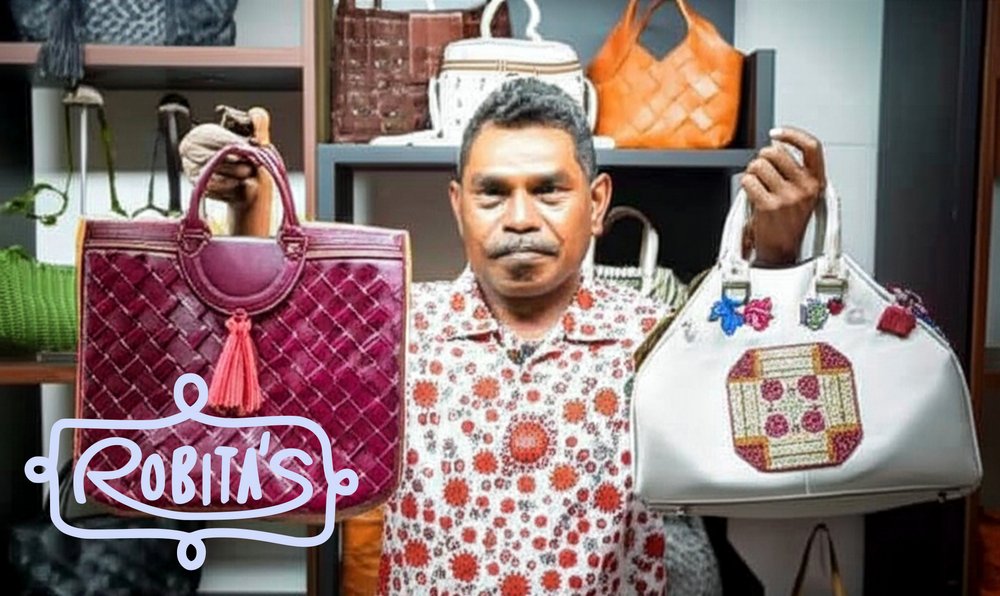
Travelers are often captivated by the allure of handcrafted treasures they discover in remote corners of the world. This fascination frequently sparks a compelling entrepreneurial question: Could these artisanal goods be imported and sold abroad? That question—equal parts reverence and ambition—is often where vision begins. Yet the true challenge of bringing such ideas to life lies in finding the right local partner—someone deeply embedded in the artisan community and capable of navigating the complex processes of recruiting artisans, managing production, and ensuring quality control.
Prepared Minds and Fortunate Turns
This is the story of Sunny Kamengmau, an Indonesian entrepreneur whose boutique handbag brand, Robita, won the hearts of consumers in Japan. Originally from a small village on a far-flung island in the archipelago, Sunny moved to Bali in search of a livelihood. He worked various jobs—hotel gardener, security guard—and began learning English and Japanese to better connect with international visitors.
In 1995, serendipity arrived not as a revelation but as a conversation. A chance meeting with Japanese entrepreneur Nobuyuki Kakizaki at a hotel set the stage for an extraordinary journey. The two remained in contact, and three years later, they launched an initiative to create handmade leather bags for the Japanese market, where quiet beauty is deeply appreciated. That marked the birth of Robita.
Collaborating closely with local artisans, Sunny embraced traditional craftsmanship. Robita bags became known for their distinctive qualities: unstrained leather that preserved its natural character, rare embroidery and dyeing techniques, and hand-stitched textures that conveyed authenticity. These thoughtful details resonated with discerning Japanese consumers, who valued the brand’s understated elegance and rustic charm.
The Quiet Routes of Opportunity
The road to success was anything but smooth. Sunny faced financial hardships and endured the loss of his Japanese business partner. Still, his resilience bore fruit. Robita earned international acclaim and eventually opened a boutique in Bali. Despite its loyal following and notable achievements, the brand recently announced its closure—without a lengthy explanation. Just a quiet farewell.
Entrepreneurship is often associated with strategy and grit. But Robita’s story reveals a deeper truth: Success frequently depends as much on serendipity—timing, circumstances, and chance encounters—as it does on effort. Sunny didn’t manufacture his opportunity. He met it halfway, prepared to rise when it came. Preparedness doesn’t guarantee triumph, but it positions one to seize opportunity when it arrives.
Idea for Impact: Hard work doesn’t always pay off, but sometimes, it does—if luck chooses to lend a hand.
Leave a Reply